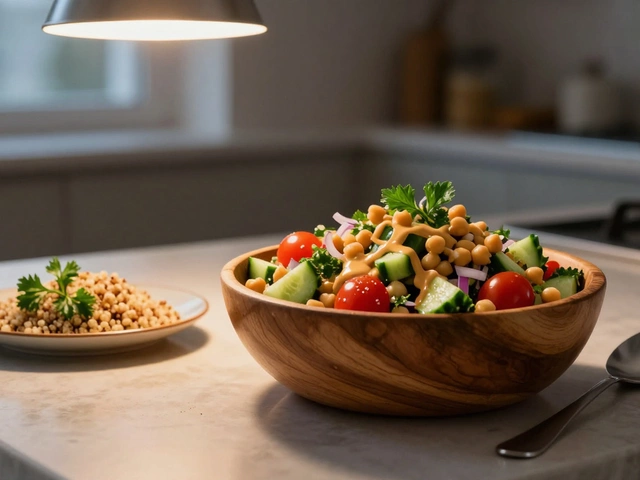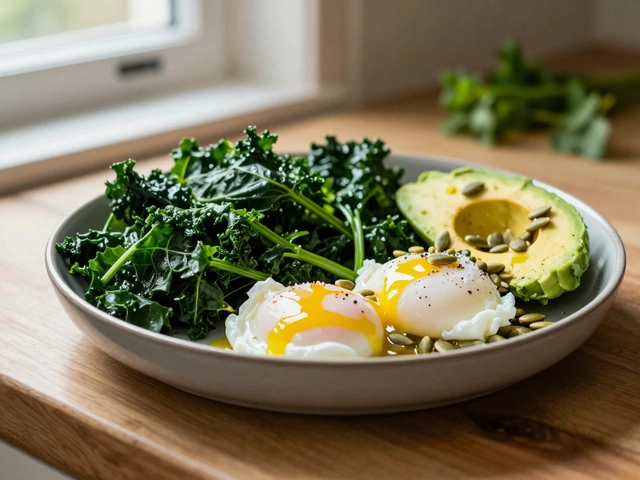Foods to Avoid: What to Skip for Health and Safety
Ever wonder why you feel sluggish after a certain meal? The answer is often hidden in the ingredients. Below you’ll find the most common foods that sabotage your health and some easy swaps.
Common Pitfalls
Processed meats like sausages, bacon, and deli cuts are loaded with sodium and preservatives. Eating them often raises blood pressure and can increase cancer risk. If you love a quick sandwich, try grilled chicken or a bean spread instead.
Sugary snacks and drinks are another big culprit. A single soda can contain more than ten teaspoons of sugar, which spikes energy then crashes you hard. Swap that soda for sparkling water with a splash of lemon – you still get fizz without the sugar hit.
Hidden gluten shows up in foods you don’t expect, like soy sauce, oat milk, or flavored chips. For anyone sensitive to gluten, those sneaky sources can cause stomach upset and fatigue. Look for labels that say “gluten‑free” or choose naturally gluten‑free options like tamari sauce.
Fast food can be easy on the stomach, but many items are high in unhealthy fats and additives. Burgers, fried chicken, and creamy sauces often contain trans fats that hurt your heart. Opt for grilled or baked versions and load up on veggies for fiber.
Some cooking methods can turn safe foods into hazards. Leaving meat in a crockpot on the warm setting overnight creates a breeding ground for bacteria. Always finish cooking on high or transfer leftovers to the fridge within two hours.
Raw chicken in a slow cooker sounds convenient, but it can stay in the danger zone (40‑140°F) for too long, increasing food‑borne illness risk. Cook chicken to at least 165°F before serving, and use a thermometer to be sure.
Safe Alternatives
Replace processed meats with plant‑based proteins like lentils, chickpeas, or tofu. They’re low in sodium and packed with fiber, which keeps you full longer.
When you crave something sweet, reach for fruit or a handful of nuts. The natural sugars in fruit satisfy cravings without the crash, and nuts add healthy fats.
For gluten‑free meals, stick to rice, quinoa, and corn‑based products. These grains give you energy without the hidden gluten traps.
Upgrade fast‑food meals by choosing grilled chicken salads, veggie wraps, or whole‑grain bowls. Add avocado or hummus for flavor without extra saturated fat.
Always finish cooking in a slow cooker on the high setting or transfer food to a stovetop pan to bring it up to safe temperatures. Use a food thermometer – it’s quick and avoids guesswork.
If you need to store leftovers, cool them quickly in shallow containers and place them in the fridge within two hours. Reheat only once and make sure the inside reaches 165°F.
Being aware of these foods and habits gives you control over how you feel each day. Small swaps add up to big health wins.
Next time you shop, keep this list in mind. Skip the processed meats, check for hidden gluten, limit sugary drinks, and follow safe cooking rules. Your body will thank you with more energy, better digestion, and a lower risk of illness.
Remember, the goal isn’t to punish yourself. It’s about choosing foods that support you and ditching those that don’t. Start with one change – maybe swapping soda for water – and build from there. You’ll see results faster than you think.

Three Foods to Quit for Better Health
by Landon Weathers / 18 Jun 2025Are you wondering which foods secretly sabotage your health? This article breaks down the top three foods to quit for good health and why they’re so dangerous. You'll learn how these foods sneak into your meals, the problems they cause, and practical tips to replace them. Plus, get insight into what actually happens in your body when you cut them out. Three swaps could make eating healthy much simpler.

